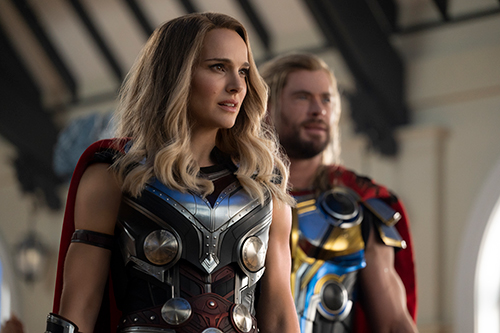
Marvel's Thor: Love and Thunder is on release now in Cineworld cinemas. Were you deemed worthy enough to see it over the weekend? If so, you've no doubt got a lot of questions about the future of the Marvel Cinematic Universe (MCU).
With spoilers, here's our breakdown of the Thor: Love and Thunder mid and post-credits scenes.
WARNING: THOR SPOILERS AHEAD
What happens at the end of Thor: Love and Thunder?
Having pursued the villainous Gorr the God Butcher (Christian Bale) to the Gates of Eternity, Thor (Chris Hemsworth) and Jane Foster/Mighty Thor (Natalie Portman) are compelled to make the ultimate sacrifice.
In wielding the power of Mjolnir, Jane, who is stricken with cancer, becomes aware that her heroic abilities are steadily weakening her health. However, she commits to the defeat of Gorr and his shadow army, at the expense of her own life.
Gorr, for his part, undergoes conversion and, at Thor's pleading, commits to love, as opposed to the destruction of all gods. He instead manifests his late daughter, herself called Love (played by Hemsworth's daughter, India Rose), and dies.
Back on Earth (aka Midgard), citizens build a statue in New Asgard to honour Jane's memory, and Valkyrie (Tessa Thompson) schools the children in the art of combat, including the late Heimdall's son Axl (Kieron L. Dyer).
Meanwhile, Thor reconciles with his jealous ax Stormbreaker, after Gorr used the latter to open the Bifrost gate. We leave Thor as he partners with his adopted daughter Love to continue to bring justice to the nine realms.
Who is the character who appears in the Thor: Love and Thunder mid-credits scene?
The mid-credits scene picks up with an angry and scorned Zeus (Russell Crowe), whom we'd assumed to be dead.
Earlier in the movie, Thor, after realising Zeus wouldn't help him to destroy Gorr, stabbed the all-powerful Olympian with his own lightning bolt. Thor, Jane, Valkyrie and the newly devastated Korg (Taika Waititi) then stole the weapon, recognising its strength in helping to overcome the God Butcher.
Zeus, however, isn't quite done yet. Cursing humanity for failing to look up to, and honour, their gods, he now seeks revenge against Thor. We then realise that he's addressing someone off-screen: his son, Hercules, played by Ted Lasso star Brett Goldstein.
So, what does this point towards? Well, as per their longstanding comic history, Hercules and Thor have vacillated between being enemies and allies, so Marvel can potentially mine some dramatic potential from this.
Hercules first appeared as Thor’s rival in the 1965 Marvel comic Journey Into Mystery Annual, and he's featured on superhero teams including the Avengers. Does this point towards Herc's role in a future Marvel ensemble movie?
Marvel Phase Four is collating existing characters such as Thor, and franchise newcomers including Shang-Chi and the Eternals. So, we imagine that Hercules will have an important role to play in the not-too-distant future.
What does the Thor: Love and Thunder post-credits scene signify?
It may not signify too much, but at least it acts as a touching send-off for Jane Foster. After the credits roll, Natalie Portman's character arrives at the gates of Valhalla where she's greeted by Heimdall (Idris Elba).
As per Thor lore, only those who die in battle can enter Valhalla. However, this leaves us with some questions.
Will this allow other characters from the Thor series to re-appear in a future Thor movie? The end card of the movie reassures us that 'Thor will return', although it's unclear if this is referring to a solo movie or an ensemble Marvel effort.
We're now wondering if the departed likes of Odin (Anthony Hopkins) and Frigga (Rene Russo), Thor's parents, might re-emerge in a kind of Norse variant of the MCU multiverse. Neither died in battle, strictly speaking, but maybe the upcoming movies will tweak this fidelity to the historical record.
Of course, we really want to know whether Loki (Tom Hiddleston) will appear again. The MCU movie iteration of Loki technically did die in battle when he was strangled by Thanos (Josh Brolin) at the onset of Avengers: Infinity War.
However, Loki's multiversal variant (aka Loki 2012) was last seen jaunting around with the Time Variance Authority (TVA), so he won't be showing up in Valhalla any time soon.
Lots of questions, too few answers...
Has our feature made you want to see the movie again? Then click here to book your tickets for Thor: Love and Thunder. Don't forget to tweet us your mid and post-credits theories @Cineworld.
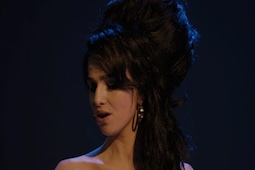
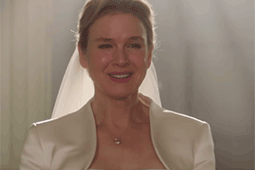
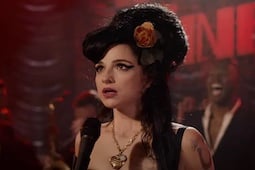

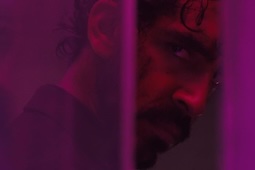
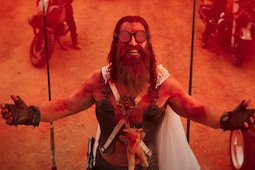
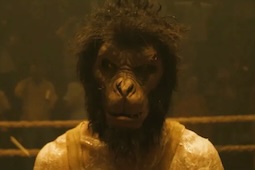

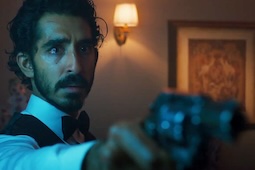
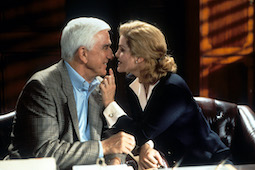
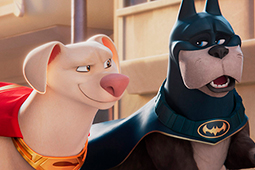
.jpg)
.jpg)

.jpg)
.png)



